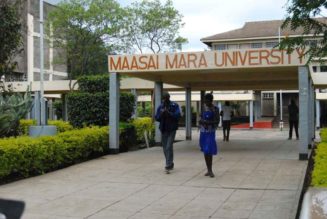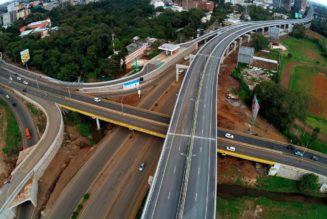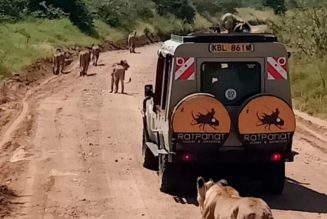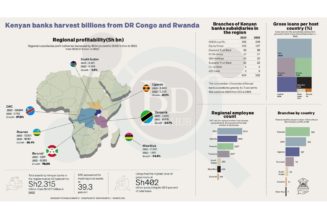Columnists
Climate change woes call for assessment of tech innovations
Wednesday May 03 2023
A flooded area at the entrance of Hotel Eel in Elburgon, Nakuru County on April 30, 2023. PHOTO | JOHN NJOROGE | NMG
The unprecedented and lengthy droughts in East Africa, the torrential rains in West Africa, the intensity of floods in Southern Africa and the progression of food insecurity on the continent remind us that climate change is an immediate reality in Africa.
The risks are not for tomorrow but for now.
A few months ago, the IPCC warned that the Paris Agreement target of limiting the rise in temperatures to 1.5 degrees Celsius would probably be exceeded in the coming years, as reductions in greenhouse gas emissions are unfortunately not as fast and sustained as needed.
However, each additional fraction of a degree will bring more damage and suffering to our continent.
Everything must be done to minimise the scale and duration of an overshoot of climate objectives and to reduce its consequences. We have to get ready.
Reducing emissions, especially by the most industrialised and biggest polluter countries remains the priority – and for those countries that are historically the highest emitters, a moral obligation.
As the earth reaches eight billion inhabitants, we have no other choice, in a tense economic, political and social context, but to work together in order to find common solutions to the climate crisis that threatens the planet and the living.
Strengthening the resilience of food systems through better access to drought-tolerant seeds, extension, good quality fertilisers and conservation of water and soil carbon is increasingly becoming critical.
But so is the need to be very intentional to preserve the failing SME ecosystem that is the basic source of services to farmers.
No amount of adaptation or resilience building will replace the need to cut back on emissions. The food systems in industrialised countries are contributing 30 percent to emissions.
Globally, farmers and lay people are most impacted by climate change, need these industrialised farmers to be considerate and to remember that what they are doing in their parts of the world is impacting farmers in Malawi, Kenya, Burkina Faso and across Africa.
Through the work of the Climate Overshoot Commission, we are looking into the pathways that can lead humanity to resolve the critical phase of the climate crisis.
In addition to the need to reduce emissions and the need to do much more on adaptation, we are analysing additional approaches such as removing carbon dioxide from the atmosphere and possibly cooling the planet by reflecting on incoming solar radiation, their technological and governance challenges, opportunities and risks.
The Great Green Wall is an example of a solution that can combine adaptation, carbon capture and economic and social benefits — employment, training, and social development for the populations concerned.
We will need to find the funding, deepen the governance mechanisms and redouble our efforts to achieve food security.
We will also have to analyse with caution the existing technological approaches, including the most innovative and daring ones, to be able to understand their impacts on our populations, their risks and their possible contributions.
Dr Kalibata is President of Agra and member of Climate Overshoot Commission.









